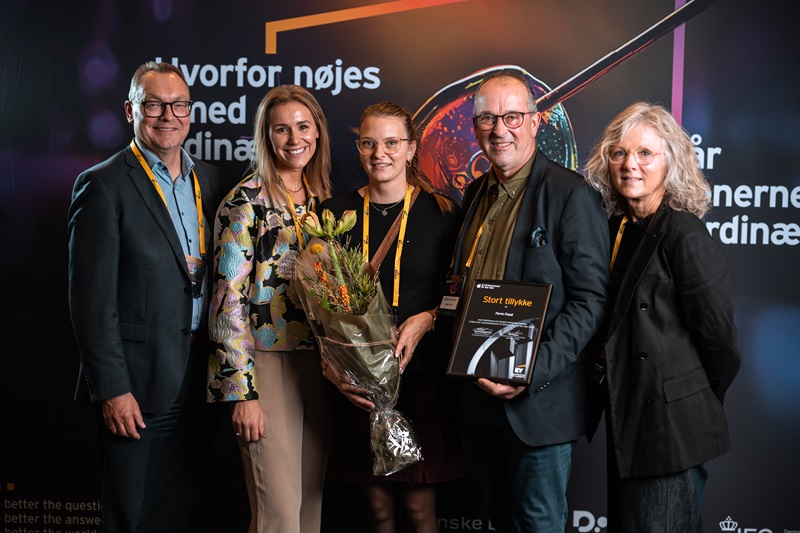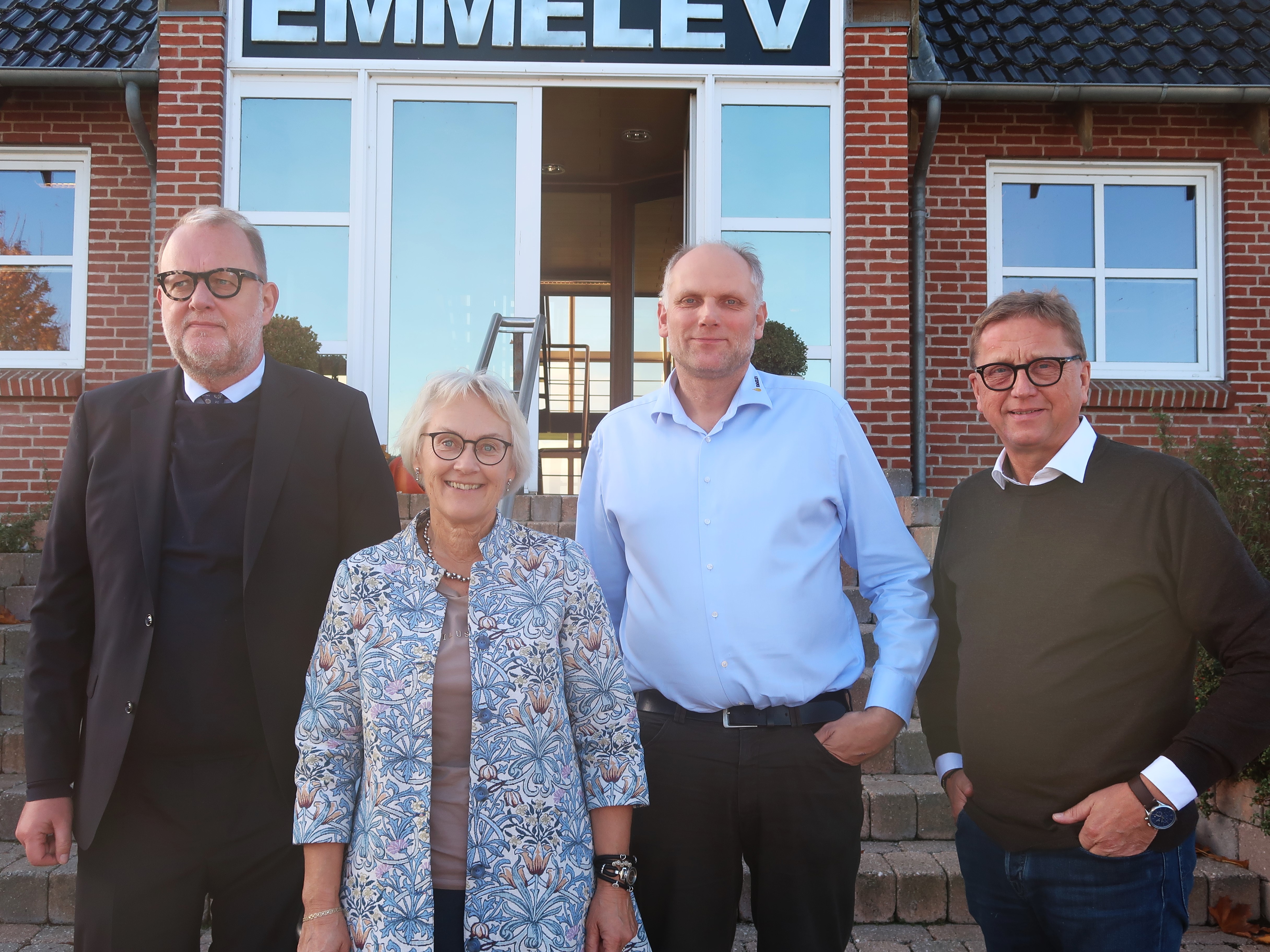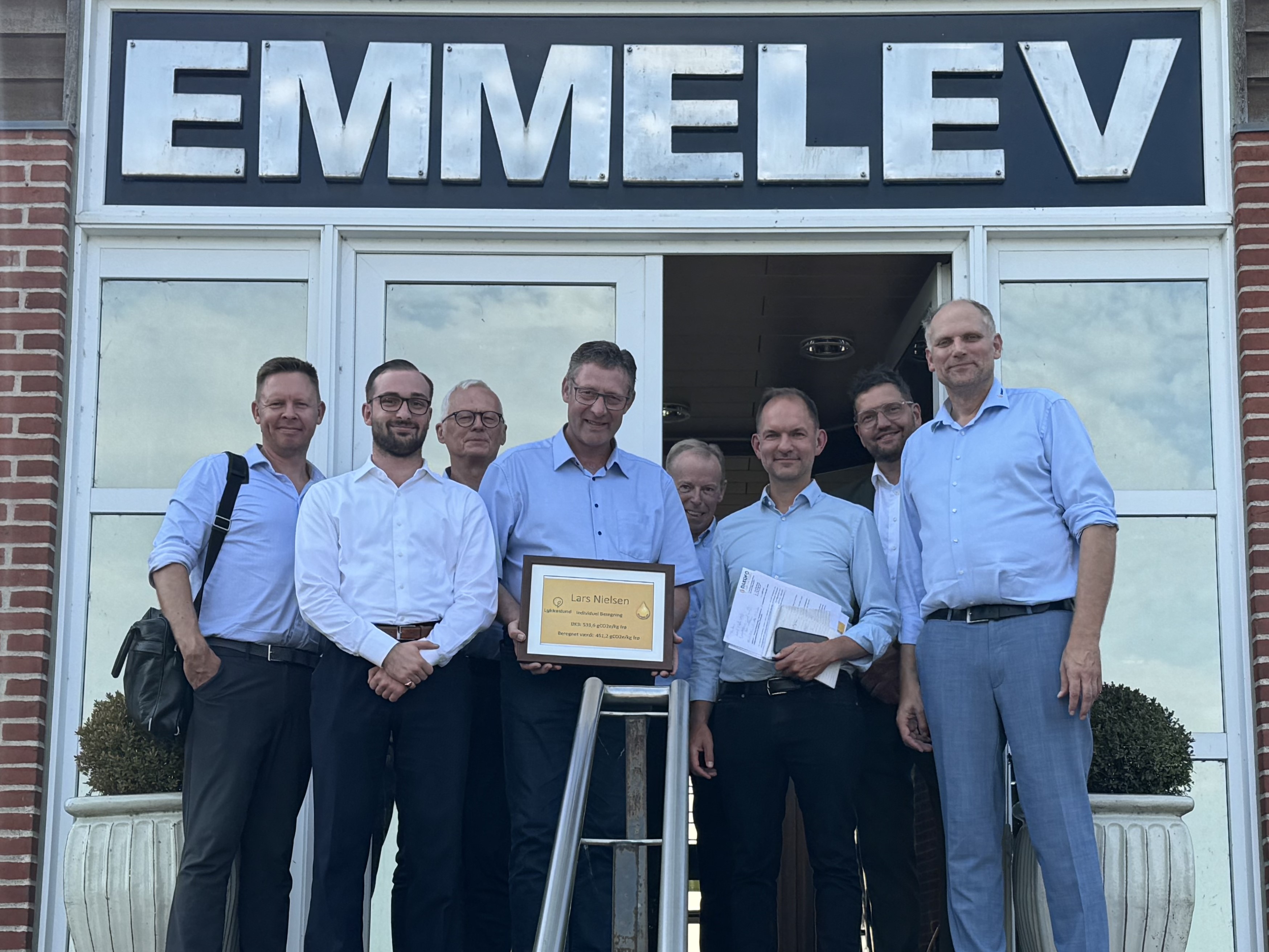Parliamentary candidate and former minister Rasmus Helveg Petersen, who on February 1st visited the biodiesel company Emmelev on North Funen, considers intensive agriculture as an incredibly important part of the solution to the climate issue.
For the Radical Party parliamentary candidate Rasmus Helveg Petersen, biodiesel is seen as a climate-friendly biofuel that should not be subjected to the negative perceptions that diesel fuel has recently faced.
“I view biodiesel as an important component of our future climate-friendly energy supply. For the past 20-30 years, the focus has been almost exclusively on electricity production when discussing sustainable energy. Now that sustainable electricity production has advanced significantly, it’s time to also focus on fuel for heavy transport, such as trucks and buses,” says Rasmus Helveg Petersen, who previously served as Minister of Climate and Energy during Helle Thorning-Schmidt’s last term.
“Moving forward, the focus on climate and CO2 issues will continue for many years, likely throughout my entire political career,” says the relatively young politician. There is a potential to save 300,000 tons of CO2 per year if the 150 million liters of traditional diesel currently used for public transport were replaced with biodiesel.
Displacing Soy
During a visit to Emmelev Mølle, now Denmark’s most experienced producer of biodiesel, after selling off its grain division to Danish Agro, Petersen learned about the benefits of biodiesel. “The development of biodiesel production has now reached a point where we can not only reduce CO2 emissions but also displace significant imports of soy protein and glycerin, which would otherwise need to be imported from distant countries,” explains Morten Simonsen, co-owner of Emmelev.
“Arla’s premium price for milk from GMO-free feed has further boosted the sale of rapeseed cakes to cattle farms, thereby reducing the need for imported soy protein,” Simonsen adds. Rapeseed cakes, the pressed residue from Danish-produced rapeseed, are 100 percent GMO-free.
Fewer Harmful Particles
Currently, up to seven percent biodiesel is blended into diesel fuel sold in Denmark, while in other countries, the percentage is often higher. “The proportion of biodiesel used depends on the engine manufacturers and their acceptance of biodiesel as a fuel. Many manufacturers today have engines that can run on 100 percent biodiesel. Every time we increase the proportion of biodiesel in the fuel, the amount of harmful particles in exhaust gases decreases, though modern vehicles already capture most of these particles with advanced filters,” explains Simonsen.
Denmark was slower than other countries in adopting systematic biodiesel blending, leading Emmelev to previously export a larger share of its biodiesel production. “Today, we sell 75 percent of our production in Denmark, with the remainder going to Sweden and Germany. In Sweden, using 100 percent biodiesel is more common,” says Simonsen.
Supporting Intensive Farming
After touring the factory, Rasmus Helveg Petersen was clearly impressed by the advanced green transition already taking place, with Emmelev as a key player. “Agriculture is an incredibly important part of the climate solutions we need for the future. Here, we’re looking at a production that is already effective and contributing to these solutions,” he says.
Despite significant opposition within his party to conventional farming, Petersen is unafraid to emphasize the importance of intensive farming, including rapeseed cultivation as a vital part of crop rotation. “It’s obvious. Agriculture plays a huge role in reducing CO2 emissions, and I can see how much this factory contributes. Both biodiesel and the production of rapeseed cakes and glycerin are moving in the right direction, fully utilizing rapeseed for sustainable solutions. This has my full support,” he says, adding that there should also be room for organic and more environmentally friendly farming in Denmark.
Climate-Friendly Transport
Emmelev primarily sources rapeseed from farmers on Funen. Currently, 178,000 hectares of rapeseed are grown in Denmark, resulting in the production of 160,000 tons of biodiesel. There is still room for expansion. In Sweden, heavy vehicles running on 100 percent biodiesel are exempt from fuel taxes.
“Another key point is that all activities—from raw material production by farmers to the sale of all products from our company—can take place within a 200-kilometer radius,” adds Simonsen.





